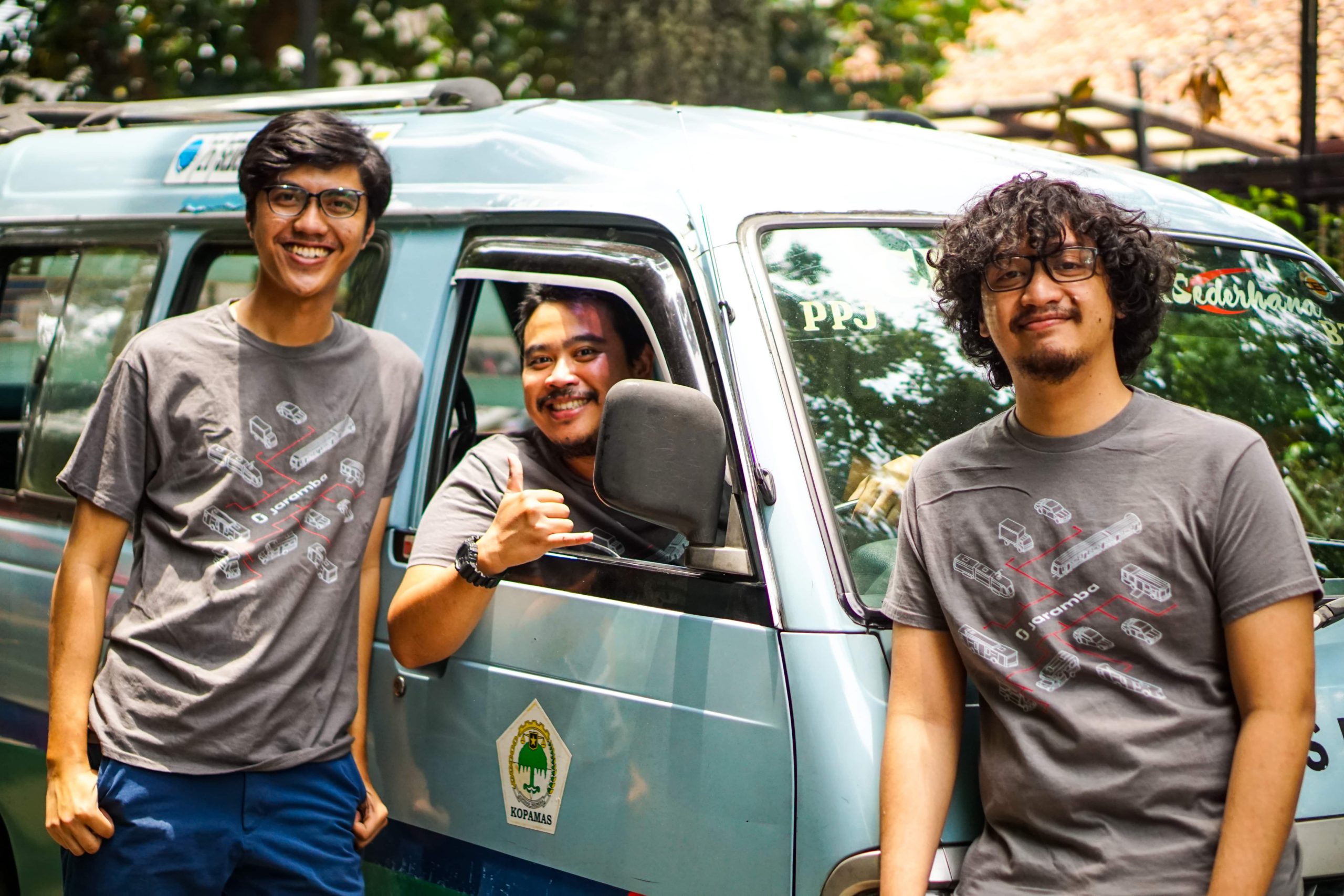This article was written by Stephanie Pearl Li, originally published on KrASIA

There are more than 154 million people living in Indonesia’s dense urban areas, yet few like to use the public transportation system. This is because public transport in the country’s major cities is unreliable and inadequate; it has a usage rate of merely 5% to 20%. This condition hinders the country’s competitiveness and accelerates social inequality across the archipelago, according to a report by the World Bank.
“Our public transport system is far from ideal. We have to search for the route first, then wait indefinitely on the sidewalk if there is one, and get confused about which bus we should take and when to switch to the next bus,” Anugrah Nurrewa, founder of mobility solution startup Jaramba, told KrASIA.
“All of those inconveniences push people to become dependent on private vehicles, to the point that we now have almost one vehicle per capita,” he added. Despite the inadequacy of the local public transportation infrastructure, Nurrewa wants to give Indonesia’s urbanites a reason to take the bus again.
Founded in 2021, Jaramba is a platform meant to make daily commutes seamless and accessible, allowing commuters to plan their trips, pay the fares upfront - with the option of using Ovo or LinkAja instead of cash - as well as track the arrival and departure times of rides. The firm currently charges an 8% fee on top of the prices of tickets that are sold via its platform.
While Jaramba is currently in beta mode, Nurrewa said that it will go live in 24 major cities over the next 18 months. Bandung, Indonesia’s third largest city, will be the first city where Jaramba goes online in January 2022.
The application also has utility for public transport providers - like bus companies - and their drivers. It provides a way to monitor their fleets and daily operations, and predicts the number of prospective passengers for each vehicle. This yields data to calculate the revenue shared between drivers and operators.
There is an array of local and international tech firms that already offer similar solutions, such as Google Maps and Jak Lingko, an app integrating online payments with public bus services that will launch by March 2022. But Nurrewa said commuters are still seeking a way to manage their daily trips, from planning routes to fare payments.
Half of public transport passengers are women, with most travelling during the evening, according to research conducted in 2019 by Pulse Lab Jakarta, which operates as part of the United Nations Global Pulse Network. Women will be Jaramba’s primary target clients, with students to follow.
“While the world is talking about autonomous cars and intelligent transport systems, cities in developing countries are still experiencing difficulties with serving the basic mobility needs of their citizens,” Nurrewa said.
“With many flyovers being built, the roads become even more congested. I believe that the future of mobility, at least for the next few decades, is neither flying cars nor teleportation gates. It is the coherence and connectedness of a whole transportation system that enables seamless travel experiences,” added Nurrewa.
In August, Jaramba landed USD 100,000 from early stage investor Antler. The firm is currently raising a seed round, with a target of USD 1 million.
Jaramba was among the ten finalists of the second Alibaba Cloud x KrASIA Global Startup Accelerator Indonesia Demo Day that was held on December 21.

1,076 posts | 263 followers
FollowAsiaStar Focus - July 5, 2022
Alibaba Cloud Community - January 7, 2022
Alibaba Cloud Community - January 20, 2022
Anna cloud communication - November 22, 2024
Iain Ferguson - May 18, 2022
Alibaba Clouder - February 8, 2021

1,076 posts | 263 followers
Follow ADAM(Advanced Database & Application Migration)
ADAM(Advanced Database & Application Migration)
An easy transformation for heterogeneous database.
Learn MoreMore Posts by Alibaba Cloud Community